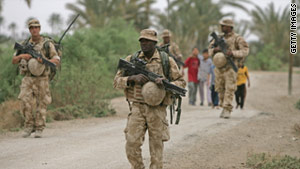By Greg Hall
Impunity Watch Reporter, Europe
LONDON, England – Lesbian, gay, bisexual, and transgender (LGBT) individuals picketed the Russian Emabassy in London on July 1 urging Russia’s voting rights at the Council of Europe be suspended because of the country’s violations of the European Convention on Human Rights (ECHR). On October 21, 2010, the European Court of Human Rights ruled that banning gay pride events violated the right to freedom of assembly. It also ruled that Moscow authorities had unlawfully discriminated against activist Nikolay Aleksandrovich Alekseyev and the organizers of gay pride events on the basis of sexual orientation, and had subsequently denied them a remedy.
The year after the court ruling, Moscow authorities banned the pride event. Four different applications were made and all four of them were denied. Eighteen people attempted to defy the ban and hold the event. However, they were aggressively arrested and persecuted by homophobic groups and religious counter-protesters, just as has happened in the previous six years.
As a consequence of violating the ruling of the European Court on Human Rights, the picketers called for Russia’s voting rights in the Council of Europe to be suspended. Five people were arrested for picketing a Russian Embassy in France when they went to deliver a petition signed by 14,000 people opposing Russia’s defiance.
Moscow’s Deputy Mayor told the event organizer, Nikolai Alekseyev, that his application to hold the event had been rejected due to the large numbers of objections it had received from members of the public. However, Nicola Duckworth, Director of Amnesty International’s Europe and Central Asia Programme, responded, “The Moscow City Authorities must overturn their decision to ban this year’s Moscow Gay Pride. So-called public morality concerns can never be used to justify restrictions on the freedom of expression of lesbian, gay, bisexual and transgender (LGBT) people”.
A poll released in June found that 61 percent of Russians oppose gay pride marches in Russia. A year ago, 82 percent said that they disapproved. Human rights campaigner Peter Tatchell said: “The arrest, mistreatment and detention of LGBT activists is illegal under Russia’s constitution, which guarantees the right to peaceful assembly. It is alarming that this homophobic repression is taking place in Russia’s most liberal city, St Petersburg. The Council of Europe must take disciplinary action against Russia over its further violation of the European Convention on Human Rights (ECHR). The Russian government must not be allowed to defy the ECHR with impunity.”
For More Information Please See:
Pride Source — LGBTs Picket Russian Embassy in London — 14 July 2011
Pink Paper — Five People Arrested Outside Russian Embassy in Paris — 11 July 2011
Pink Paper — Russian Police Arrest 14 People in Demonstration Row — 27 June 2011
Peter Tachel — Gay Activist Will Defy Ban — 25 May 2011
Amnesty International — Moscow Authorities Ban Gay Pride Event — 18 May 2011
UNHCR — Russia: European Court Rules Gay Pride Ban Unlawful — 21 October 2010

